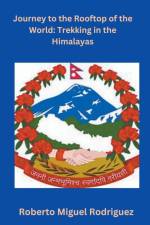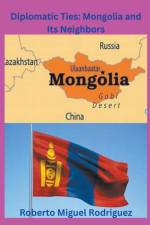av Roberto Miguel Rodriguez
271
In "Securing the Connected World," the author delves deep into the rapidly evolving frontier of cyber threats, exploring how the rise of digital sovereignty is redefining the way nations, corporations, and individuals safeguard their digital domains.The onset of the digital age has brought unprecedented convenience and connectivity. Yet, as the author demonstrates, it also introduces profound vulnerabilities. The book embarks on a journey from the early days of the internet, detailing its transition from a decentralized information-sharing platform to the nerve center of contemporary societies and economies.At the heart of this transformation is the emerging concept of 'digital sovereignty.' Nations, in the quest for enhanced control and security, are delineating digital borders, asserting rights over data, and navigating the dichotomy between open internet principles and national interests.Key focal points of the narrative include:Emerging Threats: An exploration into the state-of-the-art cyber threats, from sophisticated state-sponsored attacks and corporate espionage to decentralized hacking collectives and cyberterrorism.The Great Digital Wall: Detailed case studies of countries that are pioneering the concept of digital sovereignty, with in-depth analyses of their motivations, implementations, and global ramifications.Corporate Frontlines: Understand how global corporations, often in possession of data surpassing that of nations, are navigating this new landscape-balancing user trust, regulatory compliance, and their own digital security.Digital Rights and Wrongs: Delve into the ethical quagmire of digital sovereignty, tackling questions about privacy, freedom of information, censorship, and the global impact of localized digital policies.Defense Strategies: A pragmatic guide to contemporary cybersecurity practices, tools, and strategies, tailored for different stakeholders-from nations and corporations to individuals.The Road Ahead: Speculative insights into the future of digital sovereignty and cybersecurity. Will the digital world splinter into fractured sovereignties, or is there a middle path that upholds both security and openness?Throughout the book, the author effortlessly blends technical details with gripping narratives, making complex cybersecurity concepts accessible and engaging for both tech-savvy readers and those new to the domain."Securing the Connected World" is more than just a book about cybersecurity; it's a profound exploration of how the digital realm is reshaping geopolitics, human rights, and individual identities. It's a must-read for policymakers, tech professionals, business leaders, and anyone eager to understand the challenges and opportunities of our interconnected digital future.






























